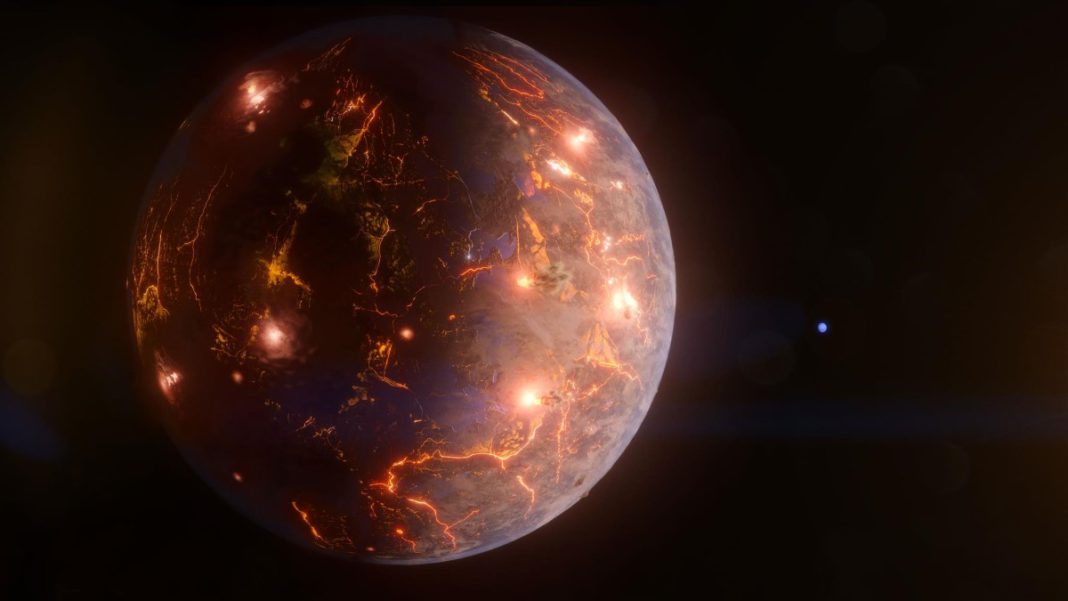UNITED STATES: Astronomers have made a remarkable discovery by finding a volcanic planet, LP 791-18d, similar in size to Earth but vastly different in its characteristics. This intriguing planet, located 90 light-years away in the southern constellation Crater, is covered with active volcanoes.
The discovery and analysis of LP 791-18d relied on data collected from NASA’s TESS (Transiting Exoplanet Survey Satellite), the decommissioned Spitzer Space Telescope, and several ground-based observatories.
This finding has garnered significant attention from astronomers, as the presence of volcanism plays a crucial role in the interaction between a planet’s interior and exterior.
Volcanism is particularly significant for a planet’s atmosphere, which is essential for supporting surface liquid water, a key ingredient for life as we know it.
LP 791-18d is part of a system that contains two other planets: LP 791-18b, approximately 20% larger than Earth, and LP 791-18c, nearly seven times more massive and 2.5 times larger than Earth.
The gravitational interaction between LP 791-18c and LP 791-18d results in an elliptical orbit, bringing the two planets closer.
Due to tidal locking, LP 791-18d always presents the same side to its star. While the daytime is too hot for liquid water, the planet’s extensive volcanic activity may support the existence of an atmosphere.
Björn Benneke, a professor of astronomy at the Trottier Institute for Research on Exoplanets, believes that the planet’s constant eruption of volcanoes could allow water to condense on the cooler nightside.
Although LP 791-18d is unsuitable for sustaining life due to its uninhabitable conditions, the presence of its active volcanoes offers valuable insights into the evolution of planetary ecosystems.
Scientists believe that the greenhouse effect caused by volcanic emissions played a significant role in rendering Venus uninhabitable.
By studying LP 791-18d, researchers can better understand the influence of volcanoes on shaping planetary ecosystems throughout time.
The discovery of LP 791-18d opens new avenues for exploring temperate Earth-sized exoplanets around late M dwarfs.
These findings contribute to understanding the conditions necessary for hospitable climates to develop on planets.
The amplified atmospheric transit signature caused by the small stellar radius increases the potential for characterizing compact secondary atmospheres dominated by gases such as N2 or CO2 using existing instrumentation.
The study of LP 791-18d within its coplanar system provides a unique opportunity to investigate a temperate exo-Earth alongside a sub-Neptune planet that has retained its gas or volatile envelope.
The gravitational interaction between the two planets prevents LP 791-18d’s orbit from fully circularising, resulting in continued tidal heating and the likelihood of robust volcanic activity on the planet’s surface.
As astronomers delve further into the mysteries of LP 791-18d and similar celestial bodies, our understanding of planetary evolution and the factors that shape habitability continues to expand. This discovery serves as a reminder of the diversity and complexity of the universe.
Also Read: Covert Solar Flare Unleashes Powerful Burst, Triggering Radio Blackouts across America



